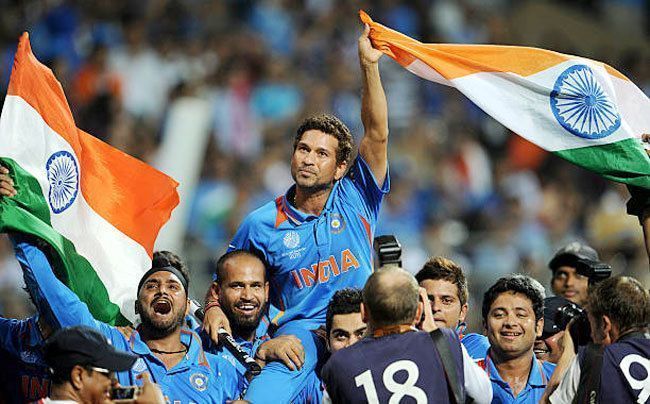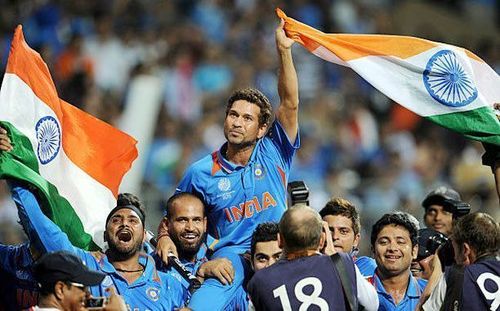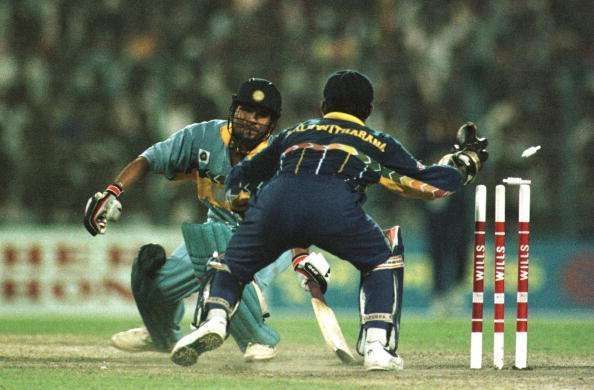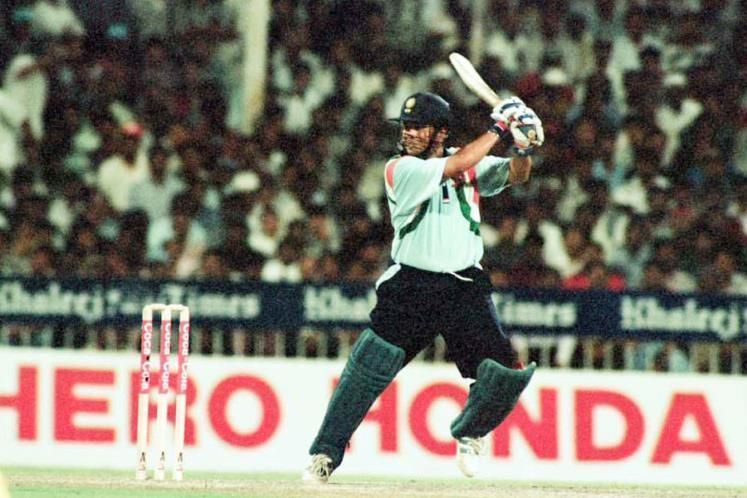
One shoulder, a billion dreams: What Sachin Tendulkar’s award-winning moment meant to his fans

2 April 2011 was a momentous occasion in Indian cricket for more reasons than one. Of course, winning the World Cup for the first time in 28 years was big enough to spark over-joyous celebrations. But at the same time, the unforgettable triumph over Sri Lanka at the Wankhede Stadium marked the culmination of a dream one man had seen simultaneously with countless countrymen.
The man was none other than Sachin Tendulkar. Playing in his sixth and last World Cup, Tendulkar finally lifted the trophy that made him a World Champion, a tag he well and truly deserved.
The World Cup glory was as much a victory of Tendulkar’s toil and perseverance as it was of the die-hard Sachin fans' incessant belief in the Master Blaster’s abilities.
They did not give up after the 1996 semi-final debacle, when Tendulkar’s dismissal led to a wicket-riot. They were still hopeful after India were out-gunned by Australia in Johannesburg in 2003. The reactions to the 2007 catastrophe in West Indies in 2007 were extreme, but one could sense that even as MS Dhoni was attacked by irate fans, Tendulkar’s reputation was largely unscathed.

Also see – ICC Women’s T20 world cup winners list
And so, coming as it did after numerous heartbreaks and setback, the moment when his team-mates lifted Tendulkar on their shoulders on the night of 2 April became all the more special. Current Indian captain Virat Kohli, then a relative newcomer in the team, perfectly summed up the emotion -- ‘Tendulkar has carried the burden of nation for 21 years; It was time we carried him’.
Yuvraj Singh and Zaheer Khan also chipped in, dedicating the trophy to the ‘special man’. At that moment, the duo sounded like any other Sachin fan.
One could understand why the youngsters in the team wanted to win the World Cup desperately for Tendulkar. Here was their hero they had admired growing up, the sole reason most of them dreamed of playing cricket. To play with Tendulkar itself was an honour, but to lift the World Cup with him was something way beyond words.
Consider this - Kohli was born just a year before Tendulkar made his Test debut, and yet ended up being his teammate when India won the World Cup at home. Dhoni and man of the tournament Yuvraj were eight at the time of Tendulkar’s entry into international cricket.
The lifting of Tendulkar was a symbolic burden off the shoulders of the Mumbai maestro and the hordes of Indian supporters who had backed him through thick and thin. Every 90s kid can relate to the sheer disappointment of a Tendulkar dismissal, and the knee-jerk reaction to switching off the TV immediately.
If you were an Indian cricket fan, it almost felt like the end of the world. Back in those days, before the likes of Rahul Dravid, Sourav Ganguly and VVS Laxman settled in, India’s loss after Tendulkar’s early walk back to the pavilion was almost a given.

The legend from Mumbai had achieved numerous unbelievable feats for his country prior to that day on 2 April, and after. There were the twin hundreds at Sharjah in 1998, the dismantling of Shane Warne in the Test series the same year. He further also went on to break the record for most runs and most hundreds in both formats (Tests and ODIs), and finished his career as the first and only player till date to feature in 200 Tests.
Even so, his career achievements would have sounded a little hollow without that World Cup trophy in the cabinet of honours - more so because Tendulkar did not possess a great record in World Cup knockout clashes, much like Kohli.
He did not contribute much in the 2011 final either. But Dhoni, Gautam Gambhir and Yuvraj ensured Tendulkar got what he deserved.
Looking at the iconic picture of Tendulkar being hoisted on Kohli’s shoulders, one can spot a monk-like calmness in the man even in his greatest moment of glory. It was this equanimity that allowed a little man to carry the burden of the humongous expectations of a nation for two decades.
And Tendulkar, more than anyone else, knew that the ‘greatest moment of his life’ belonged to his countess admirers, as much as it belonged to him.